The publication of this book could hardly be better timed. The disturbance at a Friends of Israel Society talk at University College London in October 2016, when Israeli speaker Hen Mazzig was disrupted by pro-Palestinian protestors and forced to take a police escort from the building, was the latest manifestation of the ongoing controversy about Israel-Palestine on university campuses. Universities appear to be a cauldron for the export of the Israeli-Palestinian conflict around the world. In the UK, US and many other countries, many pro-Israel Jewish and non-Jewish students complain of a climate of intimidation and increasing antisemitism.
Ruth Sheldon’s Tragic Encounters and Ordinary Ethics: Palestine-Israel in British Universities is based on her PhD thesis and draws on the detailed ethnographic fieldwork that she conducted between 2010 and 2012 with students involved in pro-Israel and pro-Palestinian activism in three UK universities. Given the sometimes highly emotive headlines about campus antisemitism, an ethnographic perspective, which seeks to understand the situation through extensive engagement with the people involved, is definitely welcome.
As is common in contemporary ethnography, Sheldon does not leave herself out of the narrative, but uses her own history and reactions from her fieldwork as a resource in developing an ‘ethical’ response to Israel-Palestine. Although clearly not a Zionist, she begins the book by recounting her grandmother’s illegal journey from Prague to mandate Palestine in 1939 (she settled in the UK in 1947). She suggests that:
…through personal reflection on the histories we carry in relation to Palestine-Israel, we can develop more ethical ways of communicating about this conflict that challenge the rationalist norms of our public institutions. (x)
Much of the book is devoted to showing how public spaces in university do not enable this type of communication. Sheldon deconstructs the model of ‘good campus relations’ that has been used commonly in recent years to ‘defend’ the ‘liberal university’ against the threat of extremism. Indeed, she argues that the very idea of the ‘liberal university’ – premised on the ideal of the university as a kind of neutral space in which disinterested rational individuals communicate without undue passion and personal investment – prevents the kind of engagement with Israel-Palestine that recognises the complex personal investments that people have in the region.
While Sheldon tends to elide the diversity of visions of what the ‘liberal university’ could and should be (and let’s not forget that the critiques of the ‘liberal university’ she draws on were produced largely by university-based scholars) she certainly shows the limitations of some of the ways the Israeli-Palestinian conflict is dealt with in university settings in the two chapters that look in detail at two campus events. In one, she recounts a public debate convened by the Israel and Palestine Societies at ‘Old University’ entitled ‘Academic Boycott: For or Against?’ This debate, where the speaker, the chair and much of the audience competed with each other to demonstrate their exemplary liberal rationality, is described by Sheldon as a kind of ‘melodrama’. Fixed positions were reiterated in a kind of endlessly repeated moral drama that cannot change anyone’s mind. In the other chapter, she focuses on a Palestine Society meeting at the same university with a Palestinian journalist. In this ‘transgressive’ Palestine event, the speaker demonstrated his intense anger in ways that disturbed Jewish students. For Sheldon, this kind of event constitutes a kind of ‘tragic’ drama, an outburst of uncontrolled emotion that emerges as an inevitable counter-reaction to the liberal university’s repression of deeply felt emotions and personal investments.
Sheldon finds an alternative to these forms of communication in her penultimate chapter, which recounts her experience with the Israel-Palestine Forum at ‘Redbrick University’. This dialogue group offered a space to students where they ‘collaborated to create an ethical practice which offered a non-violent response to the tragically entangled histories at stake in Palestine-Israel policies,’ based on ‘linguistic practices of speaking and listening [that] entailed risk-taking, acknowledgement of the unknown, cultivating trust and care, reflexivity, speaking from experience, dialogism and the capacity for open-ended relationships’ (137). Far from being simply a feel-good process of well-meaning apologetics, such conversations are – as shown in her chapter – difficult and challenging and ultimately form the basis for ‘creative democratic possibilities’. Crucially, such possibilities depend not on adopting fixed positions, but recognising uncertainty, the ambiguities of experience and open-ended encounters.
In her conclusion, Sheldon suggests that:
…rather than imagining the university through its officially venerated spectacles of rationality, such as grand debates and public lectures, we can find the university’s democratic potential in those peripheral spaces that merge the public and the personal. For, it is here that…students continue to live and learn together. (175)
This recommendation is a little unfair on the ‘official’ university, not least because not all universities are alike. Productive conversations that merge the public and personal do happen in lectures and seminars. It is in the more ‘public’ events that the university space is more likely to become an unproductive drama. The more campus politics becomes public politics, the higher the stakes are raised in university dramas over Israel-Palestine. Sheldon’s case study of the Israel-Palestine Forum is a valuable reminder of what can be achieved by students when they work things out for themselves, ‘out of sight’ of external actors. At the same time, there are limits to this – after all, students also need to learn from experts in the topic, although the seminar room is a better space for learning from experts than the podium debate.
One question that Sheldon doesn’t tackle sufficiently is why there is so much personal investment in Israel-Palestine in the first place. The book focuses on students who have some personal history or connection, including Palestine expatriates, those of Palestinian descent, and Jews with various connections to Israel. Yet, what of those who have no connection at all, but who find in Israel-Palestine the cause? In the UK, Palestinians are a minority in pro-Palestinian solidarity campaigns (and even Muslims aren’t always prominent). While Jews often do the heavy lifting in pro-Israel campaigning on campus, it isn’t always the case; a desire to defend Israel can be found among people of diverse personal histories. How might Sheldon’s recommendations apply to those whose investment in the conflict is primarily political?
There is a real tension between a model of politics predicated on rational disinterest and one based on personal history and identity. Universities often showcase the worst of both models and – as in Ruth Sheldon’s work – struggle to find a path between the two. Maybe that’s as it should be: the university is a laboratory for how to do politics (particularly the politics of Israel-Palestine) in a contentious age.

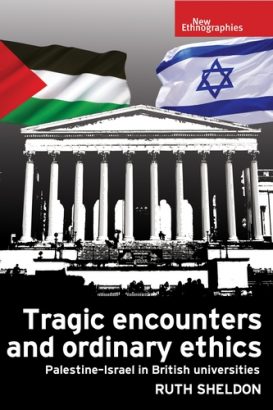

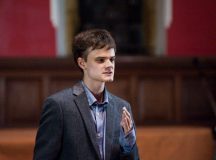
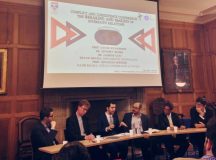
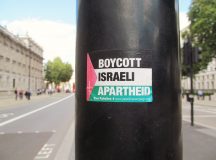
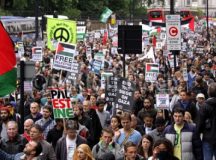































Comments are closed.